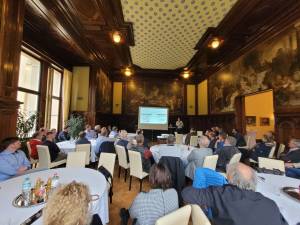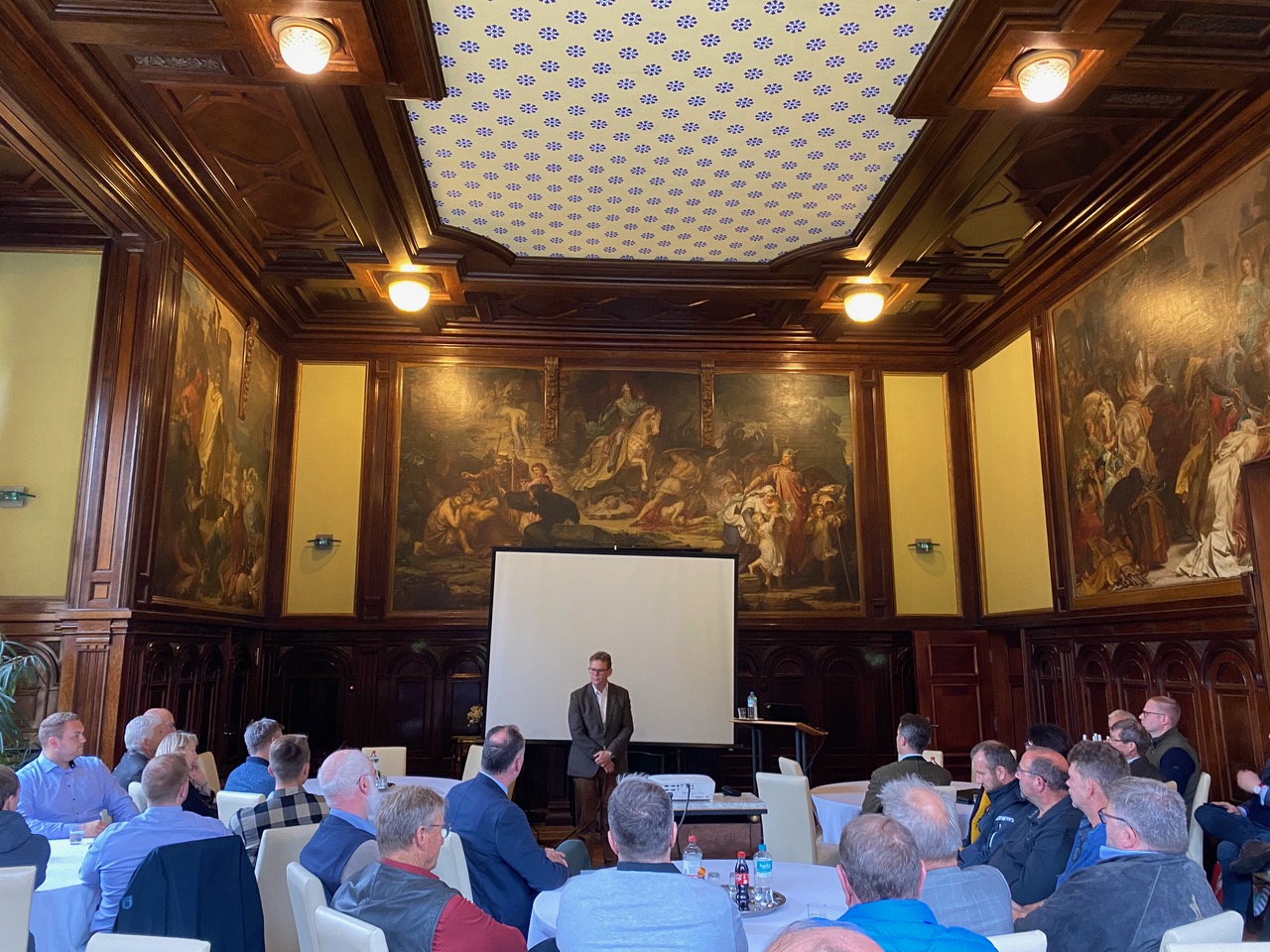On Friday, October 27, 2023, the CHB Group hosted a series of presentations on “Economic Transformation in Germany – Impact on Agriculture and Rural Areas” at Schloss Bredeneek in Schleswig-Holstein. The event met with lively interest, quickly attracted an audience of more than 50 people from sectors like agriculture, local government offices, the private sector and business partners. Among the guests were the district administrator of the district of Plön Björn Demmin and the mayor of the municipality of Lehmkuhlen Günter Frehse.
After a welcome by Carl Heinrich Bruhn, CEO and founder of the CHB Group, different presentations followed on the topic of the economic transformation of Germany, which highlighted the opportunities and challenges of an industrial shift towards renewable energies and the use of new technical processes in the field of wind power, photovoltaics and electromobility from various angles.

Heinrich von der Decken, member of the advisory board of the CHB Group, and André Kich, managing director of the Dissen-based international spice company FUCHS, discussed potentials and challenges of German agriculture, which has to adapt to the new industrial conditions and a long-term changing climate. The auditorium was taken on a journey around the world by Mr. Kich, who explained cultivation and distribution strategies from bell peppers and chili to pepper and parsley. In this context, potential cultivation opportunities for spices and herbs in northern Germany were also debated.
Rollie Armstrong, CEO and founder of NeXentury, spoke about renewable energies and the future of photovoltaics and hydrogen. Here he was able to report on his experiences in the field of large-scale solar energy projects in Africa and point out potential opportunities in (Northern) Germany.
As a representative of politics, Matthias Machnig, Vice President of the SPD Economic Forum and former State Secretary, presented his assessment of the outlook for industrial development in Germany. With his many years of experience as State Secretary in various ministries and as Minister of Economics in Thuringia, his reflections stimulated intensive discussion.
The positive response of the guests and speakers to the event format, as well as the subsequent intensive discourse between all participants, demonstrated the importance of bringing together people from politics, agriculture and the energy industry. Further series of events, which take up selected topics of the formative debates in Germany, are in planning.
Special thanks go to the Paustian family, who made it possible to organize this series in the historic Kaulbach Hall.


